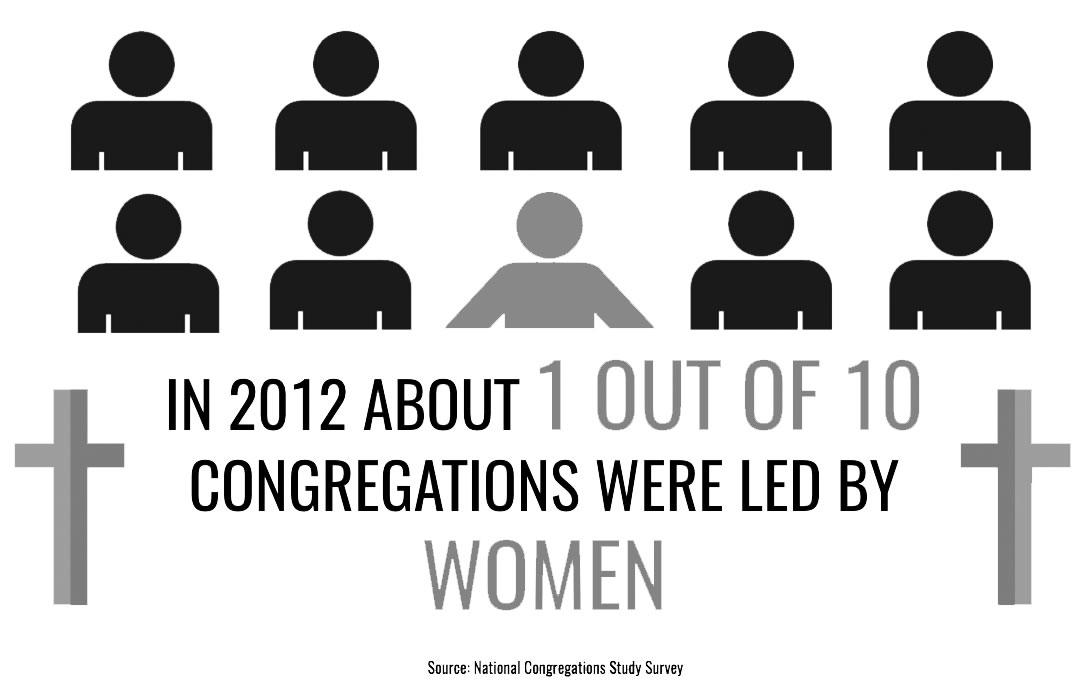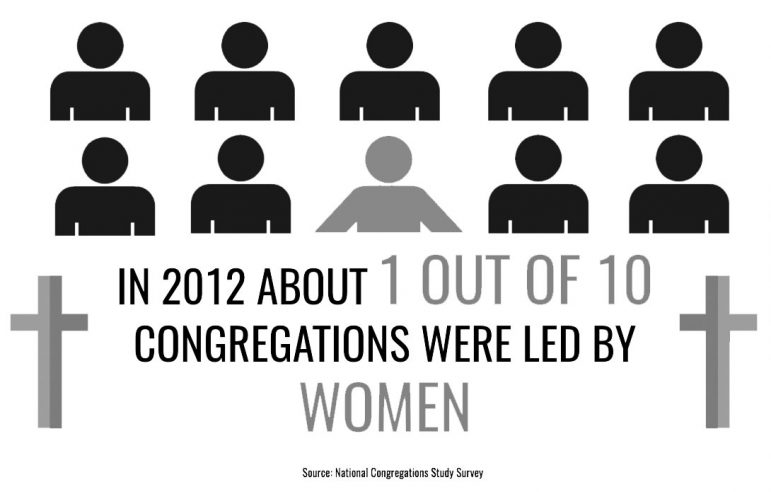

Denham had dreams of being a professor before she decided to become a pastor. She was not inspired to pursue a career in clergy until later in life: “I didn’t meet a woman minister until I was 40 years old,” says Denham. “I had no idea I could even do this job. It had never occurred to me because without role models, you just don’t realize that you can do something.”
Just as they were to Denham, female role models play a major role in shaping careers and dreams for young women. It is a fact that, with strong female leaders as role models, girls are more likely to pursue their aspirations and explore jobs that have been previously dominated by men. In India, role models have changed the way girls see themselves and their futures. According to Forbes, a study surveying local teens found that the gender gap in education has nearly disappeared. The pattern is clear: “In areas with long-serving female leaders in local government, the gender gap in teen education goals disappeared, due to the fact that girls had set higher goals for themselves.”Scientists and economists call this “The Role Model Effect.” According to the Atlantic, about 45 countries have a quota similar to India’s, which is enforced in government positions. While many statistics have proven this effective, it is still highly controversial.
Having more women in leadership positions can, and has, transformed our culture. These studies prove that when parents see women in leadership positions, such as roles in government, they are more likely to encourage their girls to reach higher. With role models, girls are more likely to pursue careers in STEM, governmental or other “male” professions.
While Denham has seen progress in both her field and the rest of the world, she recognizes that there will continue to be barriers. For example, while a majority of the pastors in her ministry, the United Church of Christ, are in fact women, almost all of the big churches are led by men. Says Denham, “[Progress] has to do with showing up. Every time a woman takes on a position [where] she’s in the minority, she’s setting an example, and needs to be aware that she’s setting an example.” She acknowledges that gender inequality is a battle that we must continue to fight: “[A woman] has to probably work harder than men to prove that her skillset is just as good, and just keep encouraging other young women to go for it: to discover what your dreams are and go for it.”
Being a woman in a leadership position will not be easy for a long time. “Know that there will be subtle ways in which you will be undermined,” says Denham, “And as those happen, you have to speak up, you have to stand up, you have to mobilize.” Don’t fetch the coffee. Don’t stay silent. And don’t let anyone tell you that you do not have the power to lead.



